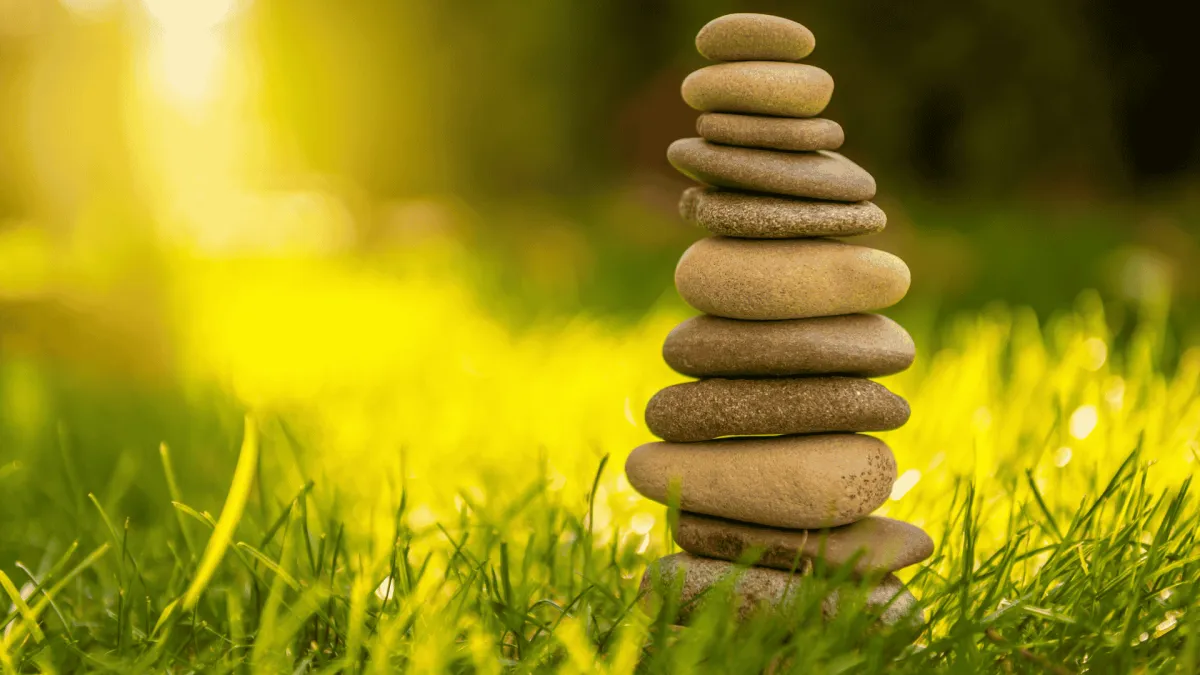
5 Habits to Build Stress Resilience in Today’s Busy World
Let’s face it… everyone deals with stress these days. It’s almost become “normal.” And in small doses, stress can even be useful — like sharpening your focus before an exam, a big presentation, or a competition. But when stress hangs around for too long? That’s when the problems start.
Stress activates your sympathetic nervous system — your body’s built-in “fight or flight” response. It’s a protective reaction. If a lion were chasing you, your body would be ready to run. Cortisol and adrenaline kick in, your heart rate speeds up, breathing gets faster, and energy is pulled away from things like digestion and detox. Perfect if you’re really running for your life.
But here’s the catch: your body reacts the same way to everyday stressors. Traffic jams, never-ending to-do lists, deadlines, difficult colleagues, family pressures, health worries. Stress is everywhere, and none of us can avoid it completely.
What you can do is create a lifestyle that helps you bounce back faster. That’s where stress resilience comes in — your ability to return to balance instead of staying stuck in survival mode.
What Stress Resilience Really Means
Stress resilience doesn’t mean you’ll never feel stressed again. Let’s be real — life happens! The difference is how quickly you can find your way back to calm when it does.
Resilience is about having simple tools and habits that support you when life feels overwhelming.
I used to ignore the signs my body was giving me — pushing through exhaustion, skipping sleep, telling myself I’d rest “later.” Maybe you’ve done the same? For a long time, I thought being busy meant being important. The busier you were, the more you proved your worth.
But stress always finds its way into the body:
Sleepless nights
Stomach problems
Anxious thoughts or low mood
Feeling overwhelmed
Snapping at the smallest things
Instead of slowing down, I would add even more to my plate. Can you relate? The things that truly lit me up slipped away, while my days got filled with the endless “must-dos.”
Here’s the truth I’ve learned: slowing down doesn’t make life fall apart. Often, it does the opposite. When you stop pushing so hard, things become clearer. Stress resilience is about listening to your body, hitting pause when you need it, and practicing habits that help you bounce back.

5 Habits to Build Stress Resilience
How you start your day matters
If you start the morning in chaos, your nervous system is already on high alert. A calmer start — no screens right away, a quiet moment for yourself, and saving coffee until after a nourishing breakfast — changes the whole tone of your day.
Want more ideas? Grab my free guide: Morning Reset for Busy Women.

Balance your plate
What you eat directly affects how you handle stress. Protein, healthy fats, fiber, and complex carbs help keep your blood sugar steady. And steady blood sugar = steadier moods, more energy, and less reactivity.
Goodbye “hangry” moments 🙃. Because let’s be honest — trying to handle a tough conversation when you’re both hungry and stressed? Not fun.
Learn how to create balanced plates in my mini-course: Smart Eating for Busy Women.
Move your body daily
Movement helps clear stress hormones from your system. And it doesn’t have to mean an hour at the gym. Even 10 minutes makes a difference.
Add in nature and you’ve got a double win — lowering cortisol while boosting feel-good hormones like endorphins and serotonin. If you practice yoga, you already know how wobbling through a balancing pose teaches you to reset and try again. That’s resilience in action.
Pause and breathe deeply
It sounds almost too simple, but breathing is one of the most powerful ways to calm your nervous system. A few intentional breaths send a clear message to your body: you’re safe.
Don’t wait until you’re running on empty. Build in little pauses throughout your day. Stop, notice where you are, take a few breaths. These small resets keep you more focused, calm, and grounded.

Protect your sleep
Sleep is your number one resilience tool. I used to treat it like the last thing on my to-do list. But without real rest, your body doesn’t get the chance to repair, recharge, and prepare for tomorrow.
Stress and sleep feed off each other — stress makes it harder to sleep, and lack of sleep makes stress harder to handle. Protecting your sleep helps break that cycle.
Final Thoughts: Small Changes, Big Results
These habits aren’t complicated — but in a busy world, they’re often the first things you let go of. With a little intention, you can bring them back in and start building resilience naturally.
And remember: you don’t have to change everything at once. Pick one habit, start small, and give yourself space to grow. Because when it comes to stress resilience, small changes really do create big results.
Ready for more support? You can download my free Stress Resilience Toolkit for practical tips or book a free call HERE to talk about your situation and get direction
True resilience isn’t about doing more or proving how much you can take. It’s about listening to your body and knowing when to pause, reset, and create space to recharge — so you can show up fully for yourself and for the people who matter most.
